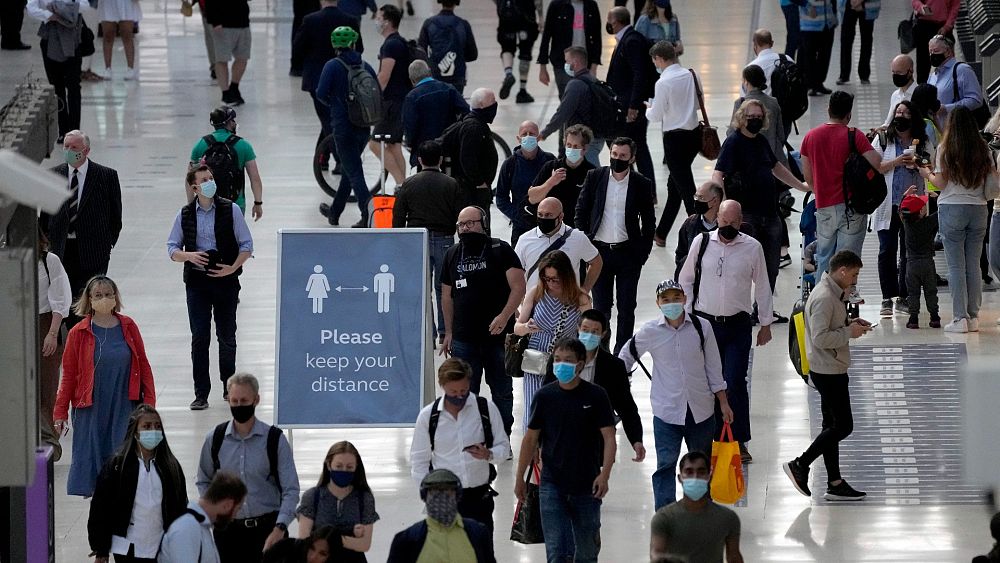
The UK recorded a drop in new daily COVID-19 infections for the sixth day in a row on Sunday, leading to suggestions it may have passed the peak of the third wave.
Official data show that 24,950 new cases were recorded across the UK in the 24 hours to Monday afternoon, down more than 4,000 from the day before and representing the sixth consecutive daily decrease.
Overall, new infections fell by 15.4% on Sunday compared to the previous seven-day period.
Britain’s third wave started in mid-May. Most non-essential shops, as well as outdoor dining and drinking, had been allowed to reopen a month earlier while restrictions on social gatherings were also being eased slightly.
By late June, the country was recording more than 20,000 new cases every day, culminating in a peak on July 17 of 54,674 infections.
The surge was blamed on the Delta variant, which first originated in India, and was found to be more transmissible than the original strain of COVID-19 and the Alpha variant, first detected in southern England.
Currently, health officials say that the Delta variant is responsible for 99% of new cases in the UK.
Professor Adam Kucharski of the London School of Hygiene and Tropical Medicine, said this weekend that the fall in new cases are “early signs” that the peak of the wave may have been reached, but warned however that “we’ve seen false peaks before.”
“I think the next week or two is going to be crucial to show if this is genuinely a slow down, a potential peak, or whether we’ve got more transmission to come,” he told BBC Radio 4.
The numbers of deaths and hospitalisations have for now not declined with respective week-on-week rises of 59% and 26.7% but remain well below what was observed during the second wave which the country went through this winter.
This has been attributed to the vaccination campaign. More than 70% of British adults are now fully vaccinated with a total of 88% having received at least one dose.
Public Health England has also warned that it is preparing for “a worst-case scenario winter season” following an out-of-season rise in respiratory infections in young children.
Successive lockdowns over the past year have reduced exposure to and the spread of seasonal viruses including the flu and Respiratory Syncytial Virus (RDV), more traditionally observed in the autumn and winter.
“As restrictions ease and people mix more, we are expecting to see a significant rise in the total number of RSV cases and admissions,” it added.